Description
Purchase of the print book includes a free eBook in PDF, Kindle, and ePub formats from Manning Publications.
About the technology
Analyzing enterprise data starts by reading, filtering, and merging files and streams from many sources. The Spark data processing engine handles this varied volume like a champ, delivering speeds 100 times faster than Hadoop systems. Thanks to SQL support, an intuitive interface, and a straightforward multilanguage API, you can use Spark without learning a complex new ecosystem.
About the book
Spark in Action, Second Edition, teaches you to create end-to-end analytics applications. In this entirely new book, you’ll learn from interesting Java-based examples, including a complete data pipeline for processing NASA satellite data. And you’ll discover Java, Python, and Scala code samples hosted on GitHub that you can explore and adapt, plus appendixes that give you a cheat sheet for installing tools and understanding Spark-specific terms.Summary
The Spark distributed data processing platform provides an easy-to-implement tool for ingesting, streaming, and processing data from any source. In Spark in Action, Second Edition, you’ll learn to take advantage of Spark’s core features and incredible processing speed, with applications including real-time computation, delayed evaluation, and machine learning. Spark skills are a hot commodity in enterprises worldwide, and with Spark’s powerful and flexible Java APIs, you can reap all the benefits without first learning Scala or Hadoop.What’s inside
Writing Spark applications in Java
Spark application architecture
Ingestion through files, databases, streaming, and Elasticsearch
Querying distributed datasets with Spark SQL
About the reader
This book does not assume previous experience with Spark, Scala, or Hadoop.
About the author
Jean-Georges Perrin is an experienced data and software architect. He is France’s first IBM Champion and has been honored for 12 consecutive years.
Table of Contents
PART 1 – THE THEORY CRIPPLED BY AWESOME EXAMPLES
1 So, what is Spark, anyway?
2 Architecture and flow
3 The majestic role of the dataframe
4 Fundamentally lazy
5 Building a simple app for deployment
6 Deploying your simple app
PART 2 – INGESTION
7 Ingestion from files
8 Ingestion from databases
9 Advanced ingestion: finding data sources and building
your own
10 Ingestion through structured streaming
PART 3 – TRANSFORMING YOUR DATA
11 Working with SQL
12 Transforming your data
13 Transforming entire documents
14 Extending transformations with user-defined functions
15 Aggregating your data
PART 4 – GOING FURTHER
16 Cache and checkpoint: Enhancing Spark’s performances
17 Exporting data and building full data pipelines
18 Exploring deployment

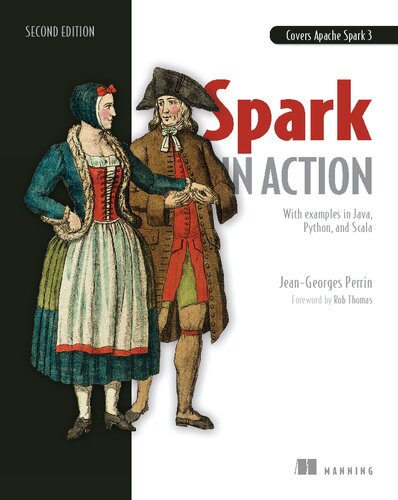
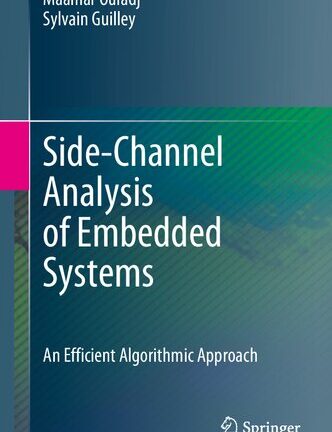
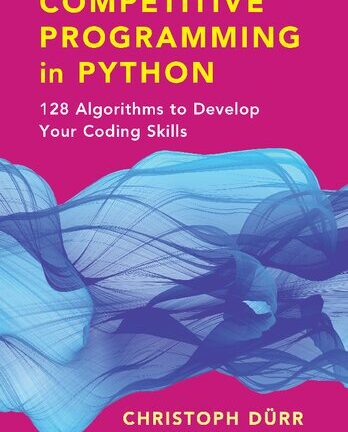
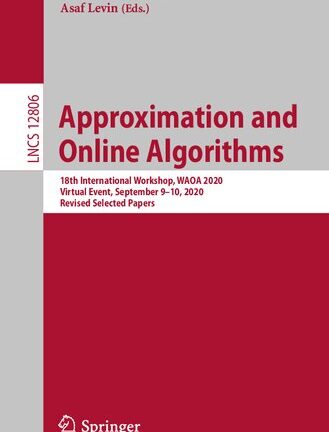
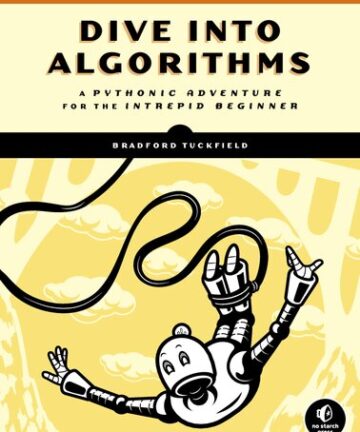
Reviews
There are no reviews yet.